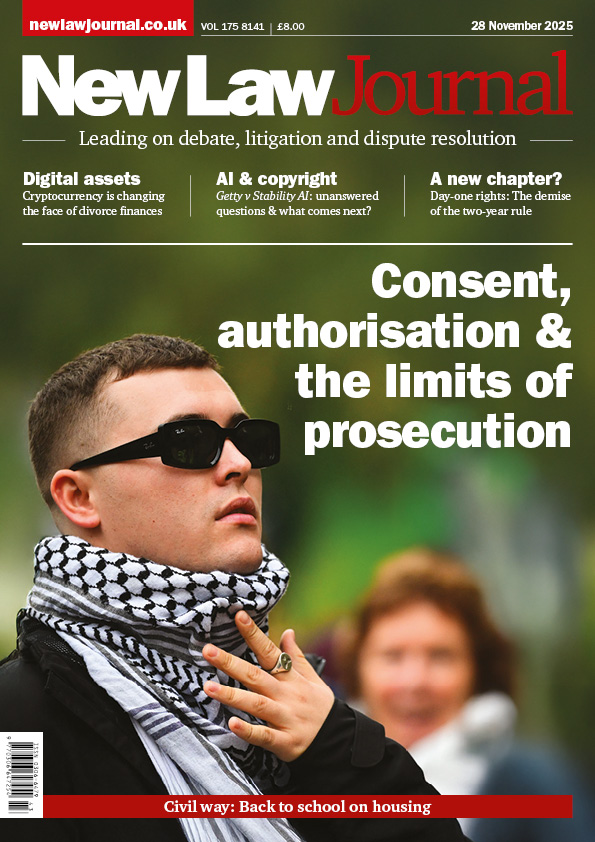THIS ISSUE

CILEX (the Chartered Institute of Legal Executives) has been granted permission to appeal Mazur, a decision which has caused consternation among litigation firms
The Criminal Cases Review Commission (CCRC) has referred three murder convictions to the Court of Appeal after reviewing arguments that the prosecution relied on a stereotyped ‘gang narrative’
Associates are the least happy fee-earners in the office, Chambers and Partners’ Leading Teams survey, published this week, has found
Scottish lawyers have formed the ABS Scotland Group ‘out of frustration with the Law Society of Scotland’s delays in implementing alternative business structures [ABSs] (or licensed legal service providers) in Scotland’
Lawyers and users of the business and property courts are invited to share their views on disclosure, in particular the operation of PD 57AD and the use of Technology Assisted Review (TAR) and artificial intelligence (AI)
MOVERS & SHAKERS

Red Lion Chambers—Maurice MacSweeney
Set creates new client and business development role amid growth

Kingsley Napley—Tim Lowles
Sports disputes practice launchedwith partner appointment

mfg Solicitors—Tom Evans
Tax and succession planning offering expands with returning partner
NEWS
The rank of King’s Counsel (KC) has been awarded to 96 barristers, and no solicitors, in the latest silk round
Can a chief constable be held responsible for disobedient officers? Writing in NLJ this week, Neil Parpworth, professor of public law at De Montfort University, examines a Court of Appeal ruling that answers firmly: yes
Early determination is no longer a novelty in arbitration. In NLJ this week, Gustavo Moser, arbitration specialist lawyer at Lexis+, charts the global embrace of summary disposal powers, now embedded in the Arbitration Act 1996 and mirrored worldwide. Tribunals may swiftly dismiss claims with ‘no real prospect of succeeding’, but only if fairness is preserved
The Ministry of Justice is once again in the dock as access to justice continues to deteriorate. NLJ consultant editor David Greene warns in this week's issue that neither public legal aid nor private litigation funding looks set for a revival in 2026
Civil justice lurches onward with characteristic eccentricity. In his latest Civil Way column, Stephen Gold, NLJ columnist, surveys a procedural landscape featuring 19-page bundle rules, digital possession claims, and rent laws he labels ‘bonkers’






